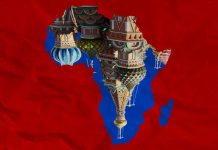Africa-Press – Eswatini. African democracies, in a phase of affirmation and consolidation, even in the conditions in which they are effective in each of the African realities, were somehow tarnished with the recent coup d’état that took place in Burkina Faso, against the democratically elected government of the President Roch March Christian Kabore.
It is true that some voices, more Afro-pessimists, will say that the evil with democracies in Africa does not reside only in changes in the political and constitutional order in the way in which coups d’état are carried out.
The seriousness of the current acts, condemnable in any part of the world, resides in the fact that the use of force to change the political and constitutional order occurs against democratically elected entities.
Africa is not in the lived era, especially in the 60s, 70s and 80s of the last century, in which the leaders, more legitimized by the right of force, to the detriment of the force of Law, ended up being overthrown from power. And the military “thought they had the right” to intervene in the country’s political life, when, in fact, they were not prevented from doing so since they retired and “naked”
Today, the continent strives to close pages related to the illegal exercise of political power, strives to recognize only democratically elected entities and begins to face coups d’état with revulsion and indignation.
More than thirty years later, most, if not all, African States have adopted liberal democracy as the new model for organizing societies in which the idea of taking power solely by constitutional means is intended as a sine qua non condition for if you are in politics.
Many African countries quickly got rid of the modus vivendi in which the coup d’état was the daily routine of political life, leading the military to gain the wrong awareness that they should always have a say in the country’s destiny.
This is a fate that, in the western part of Africa, unfortunately more than 30 years later, still prevails in some realities, as happened recently in Burkina Faso.
It is true that what happened recently in Burkina Faso, which has been a reality in recent years in some neighboring countries and members of the same economic community, is a more local problem insofar as it is unknown in other regions of the continent.
But it affects all of Africa and reminds politicians across the continent that the exercise of power, even when derived from democratic elections, legitimized by the ballot box, must be aimed at providing solutions to people’s problems.
The way populations react, strangely and paradoxically, to coups d’état, in some West African countries, with demonstrations of joy in the streets, should lead to a deep reflection on the part of African political elites.
For More News And Analysis About Eswatini Follow Africa-Press







